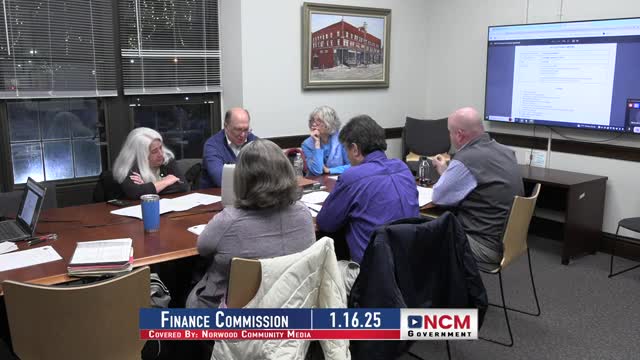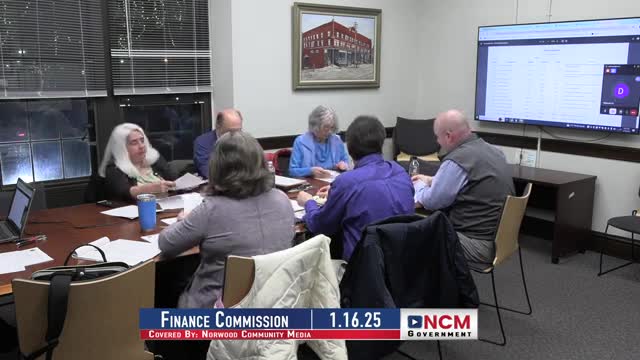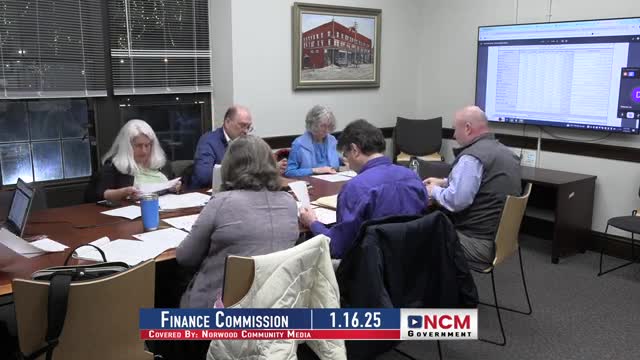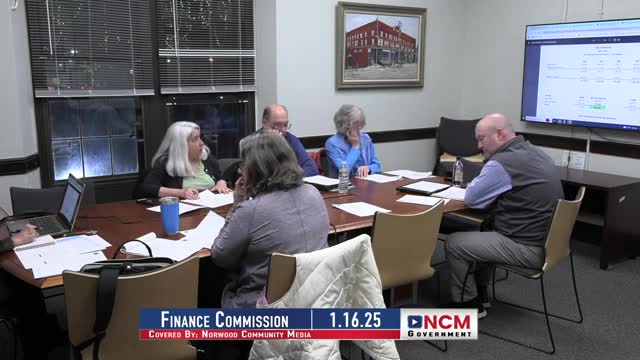Article not found
This article is no longer available. But don't worry—we've gathered other articles that discuss the same topic.

Middle school project on track for summer completion; leftover debt‑exclusion funds subject to strict borrowing‑term rules

Finance Commission reviews trust and revolving funds; compensated‑absences fund about $2.1 million with larger actuarial liability noted

Finance Commission asks for grants dashboard as members flag reimbursement timing and potential FY26 exposures

